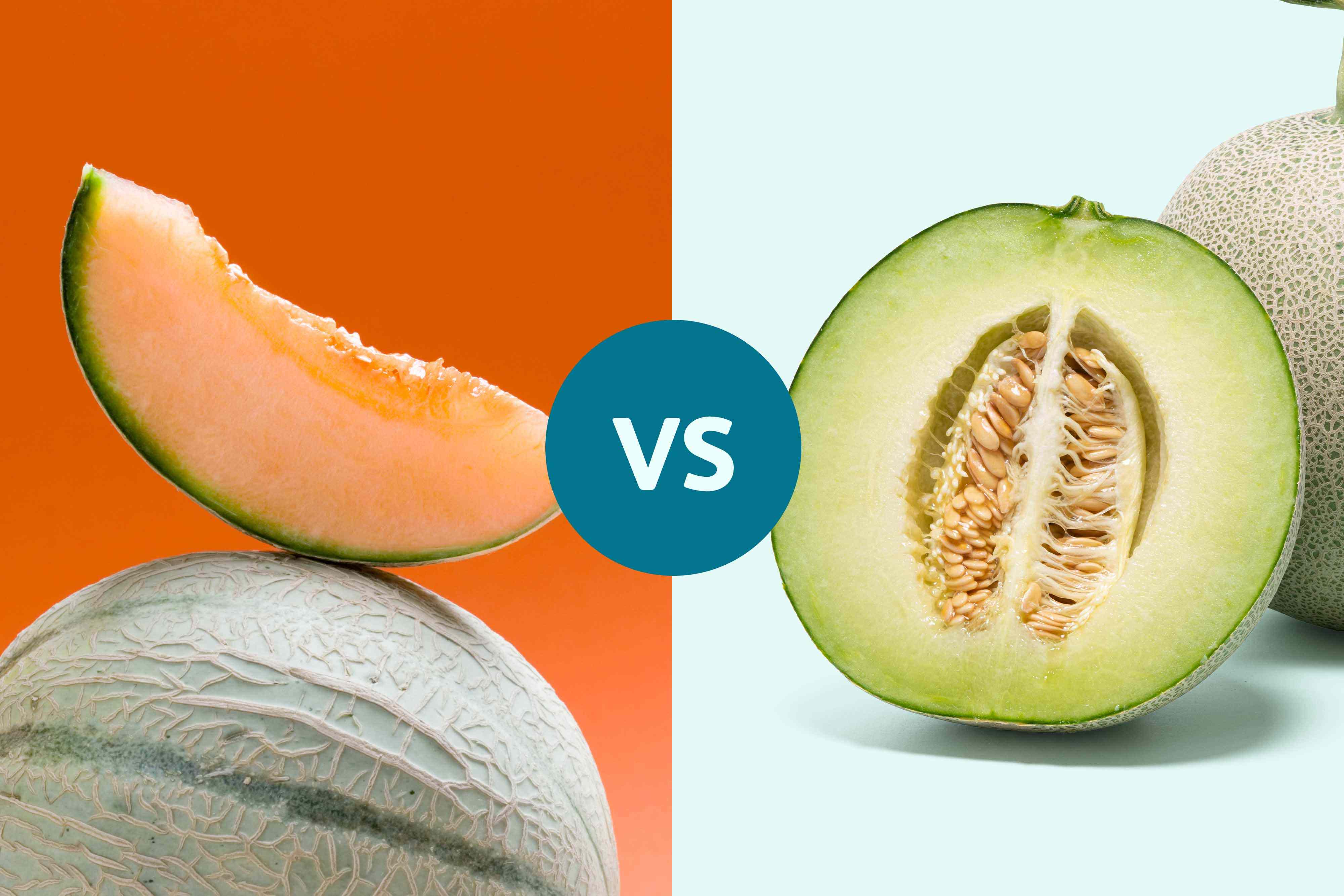
Honeydew and cantaloupe are two fruits that are closely related but different. They are both types of melons, but they differ largely in their appearance and texture. They share many health benefits, but there are subtle differences in their nutrient content that may make one more desirable than the other based on your specific health needs.
Jump to Key Takeaways.
Which One is Healthier?
When comparing honeydew and cantaloupe based on nutritional content, they are very similar. They both:
- Contain vitamins and nutrients
- Contribute to hydration
- Support the immune system
- Offer vision benefits
- Promote skin health
In a different scope, honeydew melons may be a better choice than cantaloupe due to sanitation reasons. The rough outer skin found on cantaloupe may be more likely to harbor germs and bacteria that can cause illness.
Ultimately, both fruits are healthy additions to your diet. Including a variety of colorful fruits in your diet can help you meet your nutritional needs and keep meals refreshing and colorful.
Nutrition Overview
Both melons are mostly made of water. A closer look at their nutrition content highlights differences that can guide your choice depending on your health goals or dietary needs.
When it comes to vitamins that support immunity and skin health, cantaloupe offers a notable advantage. Both honeydew and cantaloupe offer a healthy dose of vitamin C, which supports collagen production, boosts the immune system, and helps protect cells from oxidative stress. However, cantaloupe contains significantly more vitamin C than honeydew, providing 61% of the daily value (DV) in just a 3.5-ounce serving, compared to 30% DV in the same amount of honeydew.
Cantaloupe is also an excellent source of vitamin A, providing 68% DV per 3.5 ounces and over 100% in a full cup. Vitamin A is essential for eye and skin health and immune support. In contrast, honeydew provides just 1% of the DV for vitamin A, making cantaloupe the more nutrient-rich choice when it comes to these essential antioxidants. In addition to their vitamin content, cantaloupe also contains biological compounds that promote overall wellbeing and health while boosting the immune system.
Health Benefits
Due to their high water content, both melons support hydration.
Despite their natural sweetness, neither honeydew nor cantaloupe is considered to be high in sugar content. Honeydew has slightly lower sugar and carbohydrates per serving, which may be helpful for people monitoring their blood sugar. Both melons can play a healthy role in a balanced diet, offering slightly different benefits depending on your individual nutrition goals.
Allergy Considerations
Oral Allergy Syndrome (OAS) is a condition in which the immune system reacts to proteins that are present in certain fruits that are similar to pollen. Symptoms of OAS may include itchiness or swelling of the:
- Face
- Lip
- Mouth
- Throat
- Tongue
OAS may cause reactions in those with seasonal allergies after consuming certain foods. These reactions are usually related to the type of existing seasonal allergies. Those with grass or grass pollen allergies may notice itching or tingling in the mouth or throat shortly after eating melons like cantaloupe or honeydew. Symptoms typically appear immediately after consumption. Discuss with your healthcare provider if you experience any concerning symptoms after eating cantaloupe or honeydew.
Common Uses
Both honeydew and cantaloupe are versatile and can be enjoyed in a variety of ways. Cantaloupe is a popular choice in mixed fruit dishes and smoothies. It also pairs well with creamy textures like cottage cheese or yogurt.
Honeydew holds up well in chilled dishes, salsas, or paired with savory ingredients like mint. Its subtle flavor makes it a refreshing choice on its own or as a hydrating addition to juices and flavored water. Both melons have unique flavors and textures but are can also be used interchangeably in most recipes.
Key Takeaways
- When choosing between honeydew and cantaloupe, the healthier option depends on your personal goals.
- If you’re aiming to boost vitamin A and C intake, cantaloupe is the better pick.
- Honeydew may be the better option if you are prioritizing hydration.
Read the original article on Verywell Health






